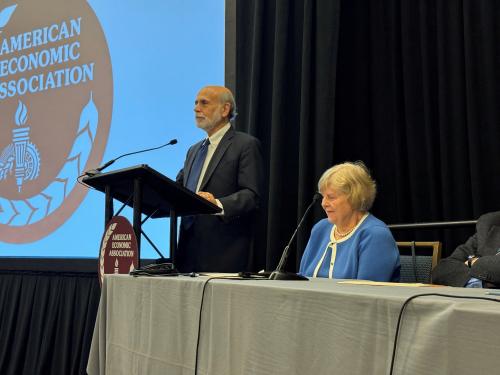
Ben Bernanke's significant contributions to economics were celebrated at the American Economic Association (AEA) annual meeting on January 17, 2025. The panel, moderated by Christina Romer, featured notable economists including Mark Gertler, Mary Daly, Emi Nakamura, and Peter Rousseau, who highlighted various aspects of Bernanke's impactful career.
Mark Gertler emphasized Bernanke's research on the Great Depression, particularly his insights into the role of credit markets in exacerbating the economic downturn. This foundational work has influenced how economists understand financial crises and their implications for monetary policy. Mary Daly praised Bernanke's leadership during the 2007-2009 Global Financial Crisis, noting his introduction of innovative lending facilities and communication reforms at the Federal Reserve, which were crucial in stabilizing the economy during a tumultuous period [30c7035e].
Emi Nakamura discussed Bernanke's expansion of monetary policy tools, particularly the significance of the Federal Funds rate in managing economic stability. Peter Rousseau highlighted Bernanke's leadership within the AEA, including his efforts to transition the organization to digital processes and improve professional conduct among economists. Bernanke's contributions to the field were further recognized when he shared a portion of the 2022 Nobel Prize in Economic Sciences, underscoring his lasting impact on economic research and policy [30c7035e].
These discussions at the AEA meeting not only celebrated Bernanke's past achievements but also underscored the ongoing relevance of his work in shaping contemporary economic thought and practice. As the Federal Reserve continues to navigate complex economic challenges, Bernanke's legacy remains a guiding influence in the field of economics and monetary policy.